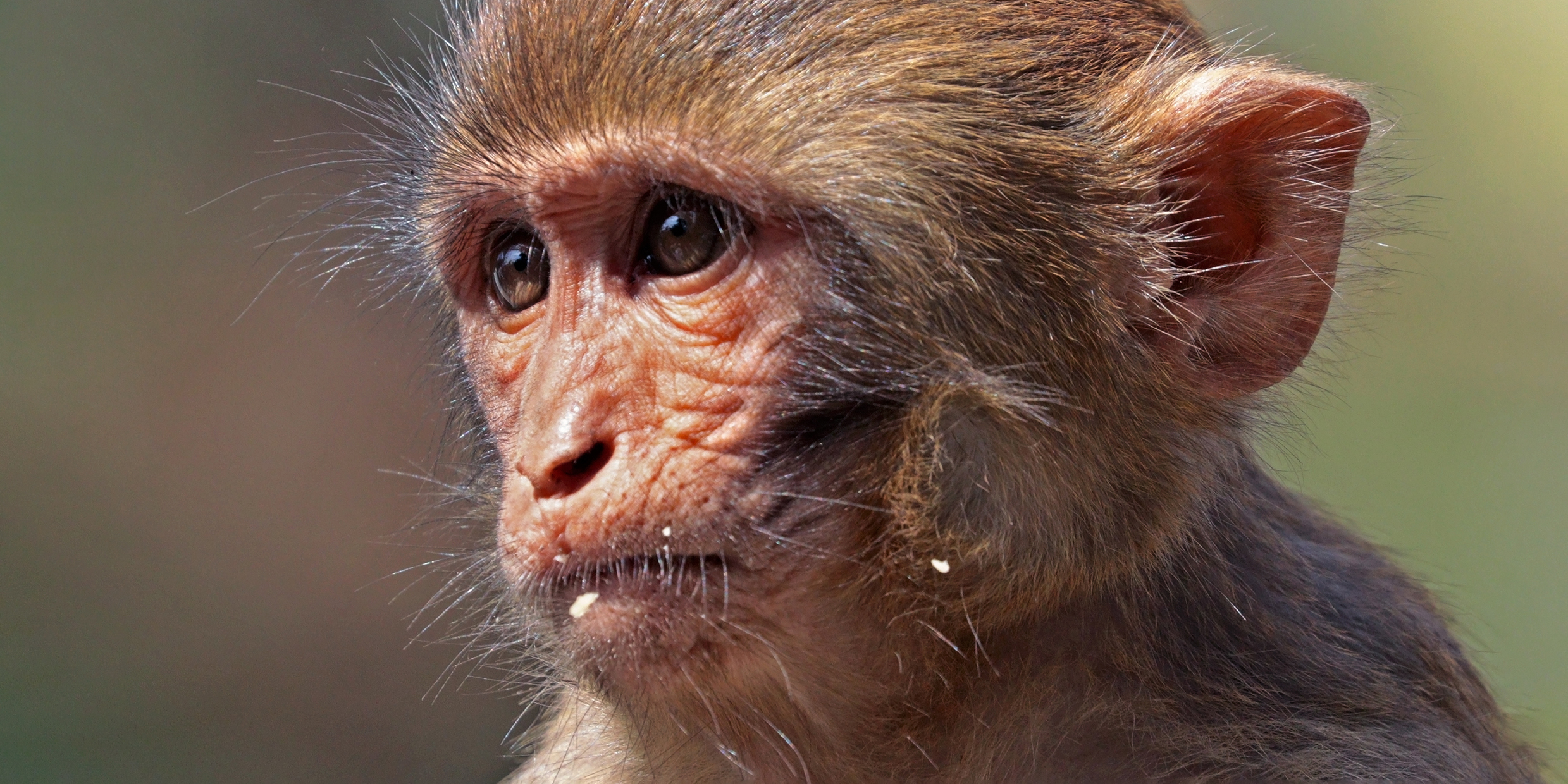Originally published 30 January 2001
An adorable 3‑month-old rhesus monkey looks out at us from the pages of the journal Science. His name is ANDi. He has, apparently, not a care in the world; a healthy little scamp who is presumably treated affectionately by his keepers.
ANDi (whose name in reverse stands for “inserted DNA”) is unique. He is the first transgenic primate. He carries a gene isolated from a jellyfish that codes for a protein that causes the jellyfish to glow green. ANDi doesn’t glow, but he might have. The gene transfer was a “success.”
To create ANDi, biologists at the Oregon Regional Primate Research Center first modified a virus to contain the jellyfish fluorescence gene, then inserted the virus into the unfertilized eggs of rhesus monkeys. A few hours later, the eggs were injected with sperm and implanted in females.
Three healthy monkeys were born, but only one, ANDi, carries the fluorescence gene. A pair of miscarried twins also carried the gene, and, unlike ANDi, their hair follicles and toenails glowed green under fluorescent light. It is not known if the inserted gene had anything to do with the miscarriages.
None of these techniques are new. In vitro fertilization has been used extensively even for humans, and jellyfish fluorescence genes have been inserted in plants, amphibians, and mice. But ANDi’s birth brings transgenic experiments closer to our own species.
What are we to make of this experiment? I am no antivivisectionist. I approve of the use of animals in medical research when there is no satisfactory alternative, and most scientists, I suppose, feel much the same. We hold the amelioration of human disease of greater value than the lives or genetic integrity of research animals.
At the same time, we have all grown more sensitive than in the past to animal rights, and to the unnecessary or frivolous use of experimental animals.
Indeed, most scientists who work with animals seem far more concerned about animal welfare than many nonscientists who would as soon whack a garden snake with a shovel as swat a mosquito, or blaze away at a white-tailed deer for sport.
But still, here is sweet little ANDi with his big baby-doll eyes, seemingly imploring love, and who cannot feel at least a twinge of guilt that his genes are not entirely his own? And what about those miscarried twins with glowing toenails?
The staggering power of the gene manipulators calls out for a vigorous public debate on the ethics of transgenic experiments. The debate rages in public forums and on the Internet, but we are a long way from reaching consensus as a society.
Where do we go for moral guidance? The received wisdom of the world’s great religions is silent about the specifics of transgenic experiments. There was no 11th Commandment on Moses’ tablets that said, “Thou shalt not mess with a monkey’s genes.”
So how about the Golden Rule, common to many religions: Do unto others as you would have them do unto you? But the Golden Rule implies the possibility of reciprocity. How does it apply between species, when we are the only species with the power to “do unto?”
If we suddenly found ourselves on the Planet of the Apes, would we want the apes tinkering with our genes?
How do we do the moral arithmetic of animal experimentation? How do we weigh the human children afflicted with AIDS, say, against the well-being of animals used in AIDS research? How many genetically modified rhesus monkeys equals the one future child with Down’s syndrome or hemophilia who might be spared that fate by transgenic primate research?
Who has the wisdom or the courage to make these determinations?
The Oregon researchers believe ANDi and his future transgenic cousins will help us understand such things as aging, neurodegenerative diseases, immunology, and behavior, presumably leading to healthier, happier lives for all. And certainly few of us want to go back to the days before modern medicine, which has depended mightily in its development upon animal research.
On the other hand, I have friends, wise and good, who would deliver a resounding “No” to all transgenic research, as the tip of a wedge that will eventually open a moral chasm. They contend that the Oregon experiment does not have any immediate therapeutic application, and that disease can be ameliorated without the use of transgenic animals.
Meanwhile, ANDi’s trusting eyes pose a question we dare not turn away from?
I don’t know the answer to the question. I wish I had the moral certitude of those who can utter an unqualified “Yes” or “No,” but I do not. In the end, I trust the collective moral goodness of my species to make the right decisions — the dismal example of the Nazi scientists notwithstanding.



